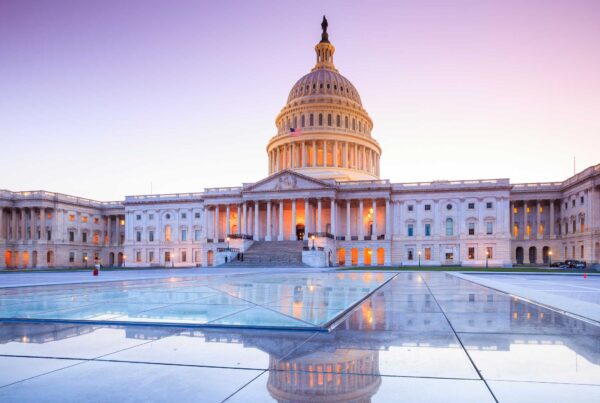The recently signed One Big Beautiful Bill Act (OBBBA) spans over 800 pages and introduces significant changes across the tax code, retirement savings, and federal benefit structures. While many feared the bill would lead to reductions in federal retirement benefits, those proposals were largely removed before final passage. The bill introduces several notable tax-related changes that merit attention—particularly for federal employees looking to build and preserve long-term financial security.
Tax Rates Made Permanent
The expiration of the tax rates introduced under the Tax Cuts and Jobs Act (TCJA) has been a looming concern. The new legislation makes those tax rates permanent, and the income brackets will now increase each year with inflation.
IRA Deduction Limits Tightened
Federal employees contributing to both a TSP and traditional IRAs should be cautious. The income phase-out thresholds for deductible IRA contributions have been adjusted to $79,000 for single filers and $146,000 for married couples filing jointly.
New Overtime Deduction (2025–2028)
A new deduction allows eligible wage earners to deduct up to $12,500 (single) or $25,000 (married filing jointly) in overtime pay, regardless of whether they itemize deductions. However, this deduction phases out for individuals earning more than $150,000 and households above $300,000.
Expanded Child Tax Credit
The Child Tax Credit has been increased to $2,200 per child under age 17 and will now adjust for inflation annually. This enhancement offers modest relief for families and is especially relevant for younger federal workers with dependents.
Senior Deduction for Individuals 65+ (2025-2028)
Although changes to the taxation of Social Security benefits were not included, individuals aged 65 and older will receive a new $6,000 deduction (subject to phaseouts starting at $75,000 for individuals and $150,000 for joint filers).
Long-Term Savings Accounts for Children
A new account type is being introduced for children born between 2025 and 2028. The federal government will contribute $1,000 at birth. Parents may contribute up to $5,000 annually and employers up to $2,500, with tax-deferred growth and long-term capital gains treatment on qualified withdrawals.
Vehicle Loan Interest Deduction
Taxpayers purchasing U.S.-assembled vehicles may now deduct interest on auto loans, subject to income limits of $100,000 (single) or $200,000 (joint).
Expiring Green Energy Incentives
Tax credits for electric vehicles, solar panels, energy-efficient doors and windows, and heat pumps are set to expire by the end of 2025. Those considering energy-related upgrades or purchases should factor this into their timing.
State and Local Tax (SALT) Deduction Expanded
The SALT deduction cap has been raised from $10,000 to $40,000 for taxpayers with an income under $500,000. This change may make itemizing deductions more appealing for those in high-tax states or with large mortgage interest payments.
Staying Informed and Planning Ahead
While the main focus of this legislation centers on tax and retirement-related updates, it also includes several broader provisions that may be worth a closer look. These changes don’t directly impact federal employee benefits, but they could still influence household finances over time.
More guidance is expected in the months ahead, but it’s a good idea to stay informed and consider how these updates might affect your financial picture. If you’d like help understanding how these or other provisions could impact your retirement or tax strategy, contact us for a personalized review.





